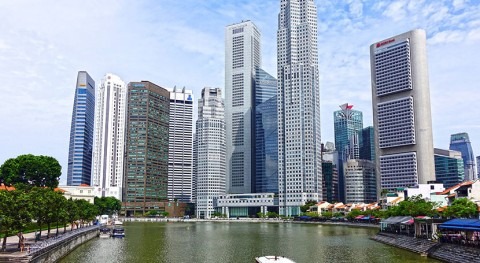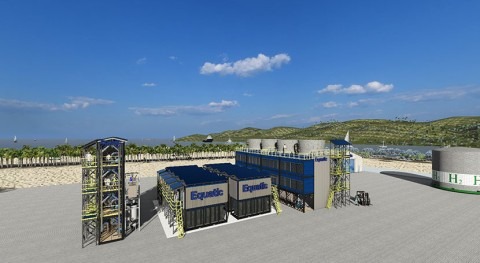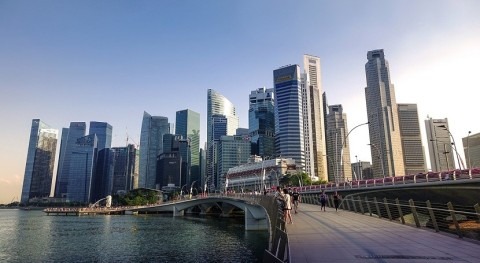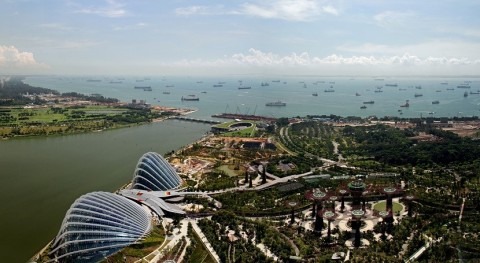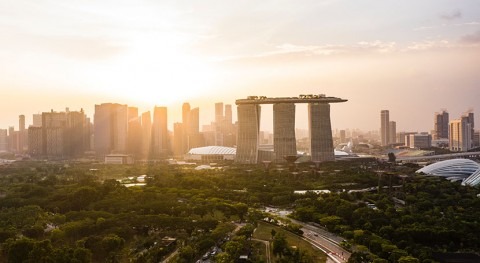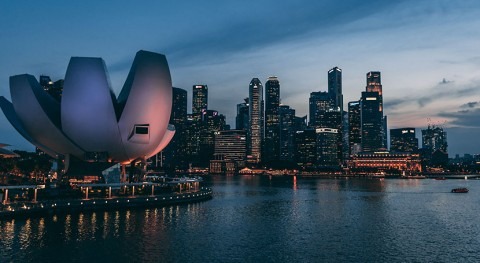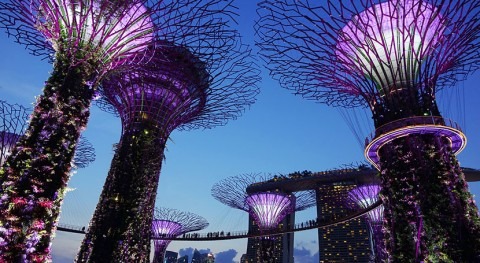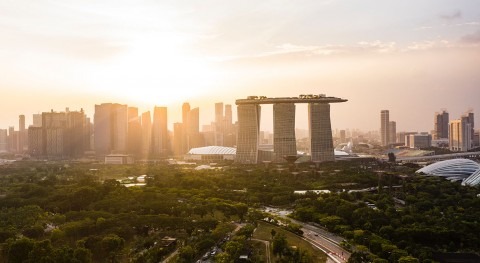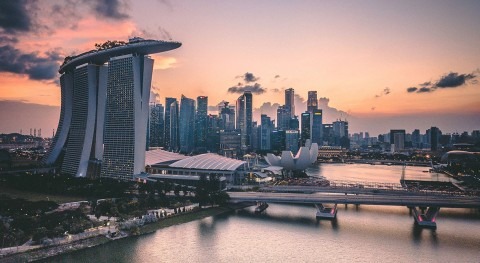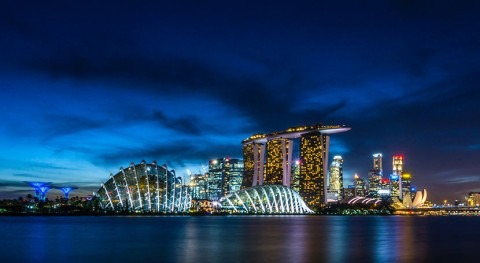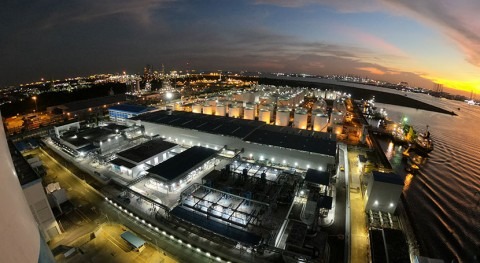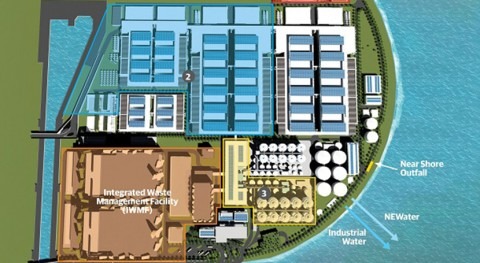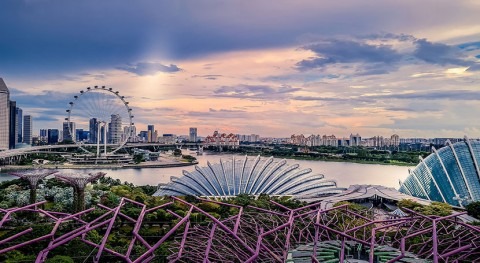In Singapore, where water demand in the non-domestic sector projected to increase substantially from the current 55% to 70% by 2060, more needs to be done to drive down industrial water consumption. Among the various initiatives, water recycling can help water-intensive companies reduce their water consumption significantly, by up to 70% in some cases.
Over the next three years, large water users that are keen to implement water recycling or water conservation solutions within their premises can tap on a funding pool of up to S$26 million. Administered by PUB, Singapore’s National Water Agency, the three funding schemes - Water Efficiency Fund, Industrial Water Solutions Demonstration Fund and Living Lab, aim to support high-impact projects and defray part of the implementation cost of innovative technologies.
With a range of measures to boost water efficiency and optimise water use in the non-domestic sector, PUB hopes to achieve industrial water savings of 3 million gallons per day (mgd) every year, or equivalent to the water demand of over 25,0001 households.
To date, PUB has facilitated the implementation of 22 projects with savings of over 5 million gallons a day (mgd) of water. Another 13 projects are expected to be completed within the next two years, bringing water savings to about 8mgd, or equivalent to the water demand of over 68,000 households. There are 34 projects in the pipeline, which are expected to contribute to an additional 10mgd of water savings, or the water demand of over 85,000 households.
Industrial water solutions a key focus at SIWW Spotlight 2019
The importance of water management practices, upcoming trends in the global industrial water market outlook and the technologies that are readily available to help businesses reduce, replace and reclaim water are some of the key issues that will be discussed among more than 180 leaders from local and international leading water companies and large industrial water users at this year’s Singapore International Water Week (SIWW) Spotlight. This is the first time the Spotlight event is focused on industrial water solutions.
With suitable treatment, industrial used water – a by-product of manufacturing processes, can be recycled and reclaimed for non-potable uses, such as cooling towers, scrubbers, processes and general cleaning. In fact, majority of industrial water use is for cooling and heating processes.
“The recycling rate in large industries is currently around 20% and there is certainly room to increase this number through greater adoption of technologies. Technologies are available and have been implemented in sectors like semiconductor, petrochemicals and others. We have been working closely with large water users to manage their water demand, providing technical and funding support for industrial water solutions and water stewardship projects”
“Through the SIWW Spotlight event, we want to encourage more companies to recognise the technical viability of these industrial water solutions and the value of water recycling for their operational sustainability, and proactively seek ways to do so,” said Mr Ng Joo Hee, Chief Executive of PUB.
Water recycling helps businesses enjoy water and cost savings
Businesses that have implemented water recycling in their operations have enjoyed significant water and cost savings. Local companies Petrochemical Corporation of Singapore (PCS) and Systems on Silicon Manufacturing Company (SSMC), a semiconductor company, are good examples. Both PCS and SSMC use NEWater in their production processes and take a proactive approach in optimising water consumption in their premises. SSMC was able to achieve the highest recycling rate of around 70% in the wafer fabrication and semiconductor industry, by reusing wet bench discharge waste, optimising wet bench flow rates and commissioning new water recycling plants to recycle different sources of used water and local scrubber reject.
In addition to its existing efforts, PCS recently commissioned a demonstration plant to treat secondary effluent from their existing conventional activated sludge (CAS), with the treated water recovered for process use. The implementation of this system will see PCS’s uptake of NEWater reduced by up to 10%. Through this, PCS is able to achieve a water recycling rate of up to 25%.
Swiss-based infant milk product manufacturer Wyeth Nutritionals’ Singapore operation became the first of its operations globally to reuse water and achieve the highest recycling capacity using a patented High Efficiency Reverse Osmosis (HEROTM) system. With technical and funding aid from PUB, they were able to construct a 300 m3 water recycling plant within its premises located in Tuas. The plant treats and recycles used water for reuse in its cooling towers, allowing Wyeth Nutrition Singapore to achieve up to 25% savings in water consumption.
Reduce, Replace, Reclaim
PUB encourages companies to boost their water efficiency through the Reduce, Replace and Reclaim approach. This includes the Water Efficiency Management Plan (WEMP), where large water users are required to install private meters to monitor their water usage, and to submit their proposed water efficiency plans to PUB annually.
With the data collected from the WEMPs, PUB develops sector-specific water efficiency benchmarks and Best Practices Guides to help industrial users better understand water usage patterns in their premises and strive for higher water efficiency. PUB has already established sectoral water efficiency benchmarks for buildings (office buildings, retail malls, hotels), schools, wafer fabrications and semiconductor sectors, and published the Best Practices Guides for the Building Sector, Wafer Fabrication and Semiconductor Sectors as well as for Refineries, Petrochemicals and Chemicals sectors. The benchmarking data for commercial laundries, biomedical manufacturing and data centres will be released this year, together with the Best Practice Guides for commercial laundries and biomedical manufacturing.




